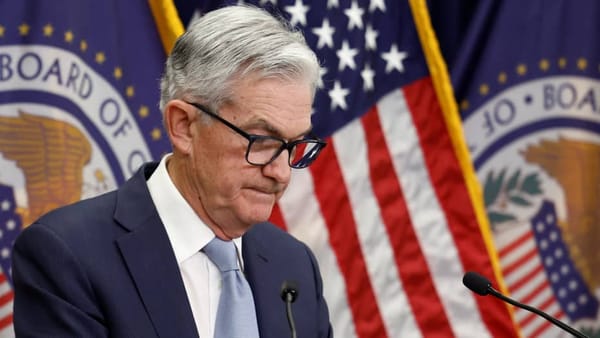Watch live: Federal reserve system raising rates 0.25 basis points, Jerome Powell speech
The Federal Reserve has increased interest rates, marking its third hike since the pandemic. The central bank aims to manage inflation expectations and support the strengthening US economy. However, the pace of growth has slowed and the recovery remains uneven, particularly for lower-wage workers and small businesses. The Fed has pledged to continue supporting the economy and maintaining low interest rates until substantial progress has been made towards its goals.
Read more:
Federal Reserve, interest rates, third hike, pandemic, inflation expectations, US economy, growth, recovery, lower-wage workers, small businesses, supporting the economy, maintaining low interest rates, substantial progress, goals, mortgages, credit cards.

The Federal Reserve's recent interest rate hike has raised concerns about its impact on the stock market and volatility funds. A hawkish Fed, meaning one that is inclined to raise interest rates, could potentially curb the stock buying spree and increase market volatility. This could impact funds that have been betting on low volatility, such as inverse volatility exchange-traded funds (ETFs) and exchange-traded notes (ETNs). Despite the Fed's efforts to keep the market stable, investors are becoming more cautious about the stock market's future prospects. Some experts suggest that diversifying portfolios to include bonds and other non-equity investments may help mitigate the impact of a hawkish Fed on stock market investments.
The Federal Reserve, also known as the "Fed," is the central banking system of the United States. It was created in 1913 to provide the nation with a stable monetary and financial system. The Fed's responsibilities include implementing monetary policy, supervising and regulating banks and other financial institutions, maintaining the stability of the financial system, and providing financial services to the U.S. government.
The Fed operates independently within the government, but it is subject to oversight by Congress. The Fed is led by a seven-member Board of Governors, and it has twelve regional Federal Reserve Banks located throughout the country. The Fed makes decisions about interest rates and the money supply, which can influence the economy, inflation, and employment.
Jerome Powell is an American lawyer and economist who is currently serving as the 16th Chair of the Federal Reserve System. He was nominated to the position by President Donald Trump in November 2017 and took office in February 2018. Powell succeeded Janet Yellen as the Chair of the Fed.
As Chair of the Fed, Powell is responsible for leading the central bank in its mission to maintain a stable financial system and support maximum employment and price stability. This involves setting monetary policy, supervising and regulating financial institutions, and overseeing the operations of the Federal Reserve System. Powell is also a member of the Federal Open Market Committee, which is the main policy-making body of the Fed.